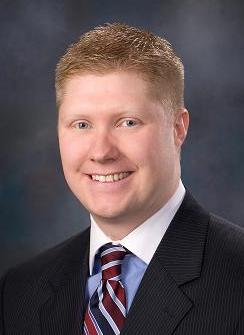Today (Sunday), the Statesman chose to make public education the focus of its editorial. Definitely a worthy choice. With thousands of school children and college students throughout Idaho just finishing or preparing to start their first week of the fall semester the topic is also very timely.
Reading the editorial was a bizarre, almost speaking in the third person type experience. The editorial itself had three basic assertions.
- Cuts to public education (K-12) have resulted in higher property taxes for local property taxpayers.
- Idaho continues to disinvest in post secondary education and shift the costs onto students and parents
- Cuts to K-12 and post secondary education are nearsighted and there hasn't been any effort to innovate/reform the system
Let me take each point one at a time.
First, the Statesman is absolutely correct that the cuts to public education have shifted costs to property taxpayers. Unfortunately, that isn't news. On March 25 I argued vigorously on the floor of the House that cuts to public education would have this precise impact. I did so in an attempt to discredit the education budget as it clearly violated Joint Rule 18, which states in part:
Statement of Purpose and Fiscal Notes.-- No bill shall be introduced in either house unless it shall have attached thereto a concise statement of purpose and fiscal note. The contact person for the statement of purpose and fiscal note shall be identified on the document. No bill making an appropriation, increasing or decreasing existing appropriations, or requiring a future appropriation, or increasing or decreasing revenues of the state or any unit of local government, or requiring a significant expenditure of funds by the state or a unit of local government, shall be introduced unless it shall have attached thereto a fiscal note. This note shall contain an estimate of the amount of such appropriation, expenditure, or change under the bill. The fiscal note shall identify a full fiscal year's impact of the legislation. Statements of purpose and fiscal notes may be combined in the same statement. All statements of purpose and fiscal notes shall be reviewed for compliance with this rule by the committee to which the bill is assigned. A member may challenge the sufficiency of a statement of purpose or fiscal note at any time prior to passage, except upon introduction.
Essentially this says that each bill has to have a fiscal note that reflects fiscal impact to both the State and any unit of local government. If it doesn't, the bill is invalid. Obviously, with dozens of districts throughout Idaho raising property taxes as a result of the budget cut, the rule was violated. Unfortunately, the majority was more interested in balancing the budget on the back's of school children than following the rules we have given ourselves.
The second point on the disinvestment in post-secondary education is also very well made and the same point I've been making since my first day in the Legislature. I don't want to spend too much time here, but obviously there have been a few of us that get that point. The combination of cutting public education and raising the limits on tuition hikes is devastating for middle income Idahoan families. I have, without exception, opposed all attempts to reduce funding to higher education and raise student tuition/fees. We are leaving our students with a legacy of debt.
Third and finally, I couldn't agree more that innovation is necessary throughout the education pipeline. As it turns out, I co-authored what has been described as the most innovative change to public education since the late 1990's. The Master Advancement Pilot Project (MAPP) is exactly the sort of innovative policy solutions that the Statesman seems to be talking about, but fails to recognize. Now, I know in the past they have given it some credit, but to ignore MAPP in this editorial just doesn't make sense. I am excited for the future of MAPP and look forward to the positive changes it makes to Idaho's public education system.
I suppose the whole point of this post is to try to find a way to tactfully say, "I told you so." More than that, I just wish the Statesman would quit trying so hard to avoid giving credit when it is due. The decision to omit information is what makes the electorate in Idaho less informed and less well prepared to vote. There legislators fighting for the things they are talking about, lets name names and quit dancing around the issue.
